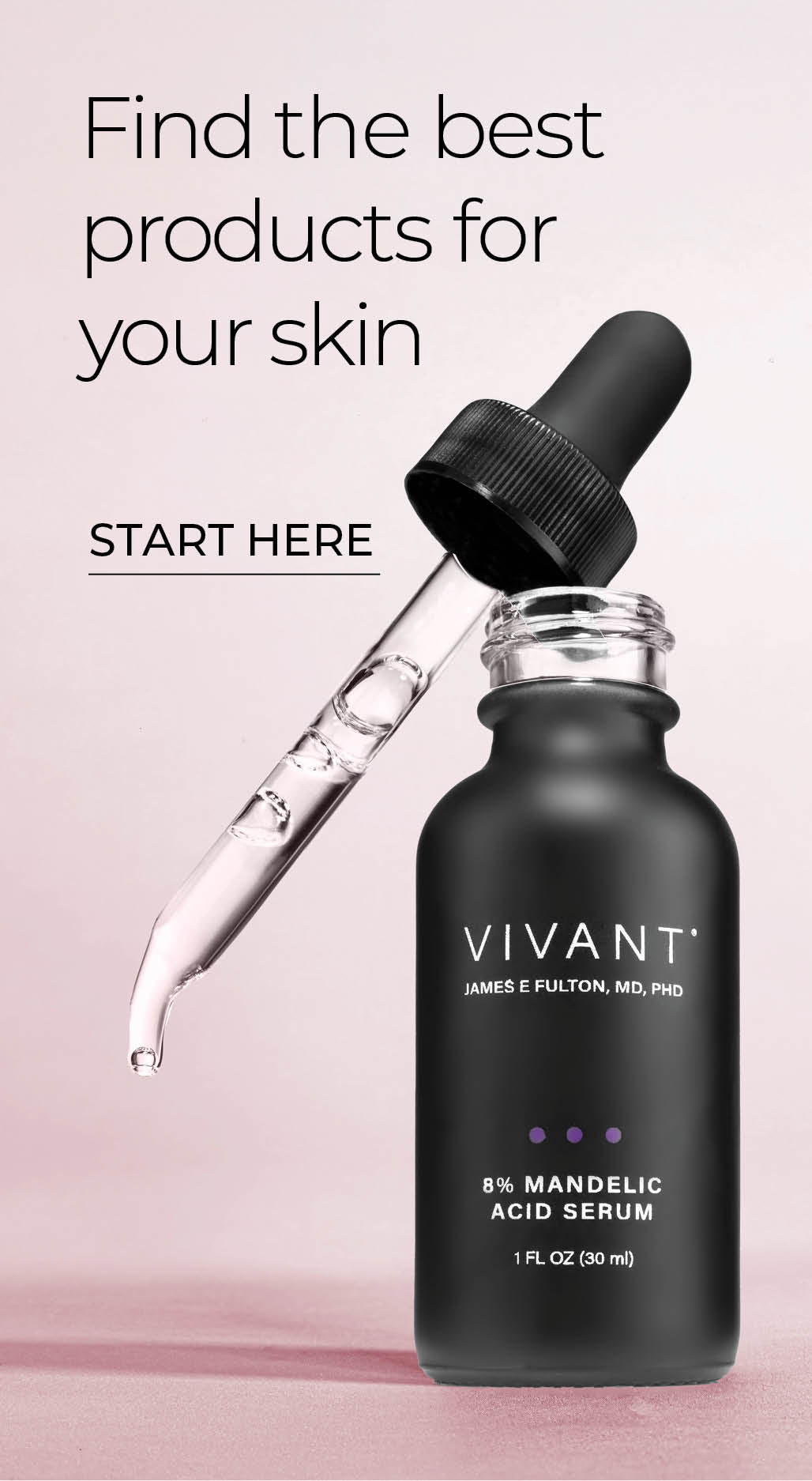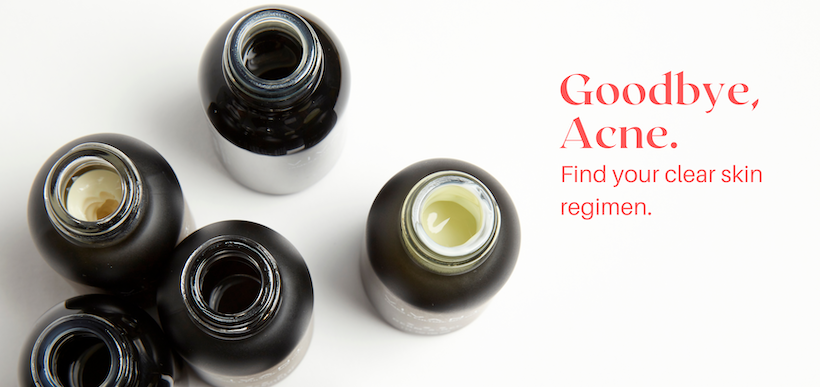The What, When, Why, and How of Serums

If the word serum brings to mind magical potions and strange incantations, you’re not alone. There’s a definite aura of mystery surrounding serums that can make it hard to know where to start. But when you take a closer look at the facts and formulas, it’s easy to find the right fit for your skin. Here we sort out your questions about these skin care superstars and explain why no skin should be without at least one.
What is serum anyway?
Technically, it’s the amber-colored, protein-rich component of blood plasma, or the clear fluid that provides sustenance inside a plant system, essentially the substance of health and vibrancy in living things. Skin care serums are fluids of light consistency that provide elements essential for health and vibrancy of skin. Serums are formulated to be maximally potent with highly concentrated ingredients that target specific concerns like acne, aging, or discoloration. In short, they are the workhorses of your skin care stable capable of taking on and transforming all your trouble spots.
Which serum is right for your skin?
There are hundreds of serums out there with any number of combinations of ingredients to take on every problem known to skin. It’s easy to get lost. But narrowing it down to the formula that perfectly fits your skin’s needs doesn’t have to be complicated. For each skin type and concern, there are a few indispensable ingredients that, above all others, are tried, true and totally worth your time. Here are the top ingredients to look for based on skin’s most common concerns.
Acne: Your top ingredients are Vitamin A Propionate, aka retinol, aka the gold standard, aka developed and patented by James E. Fulton, M.D., Ph.D. (accelerates cell turnover, clears blemishes, reduces inflammation and scarring, strengthens skin structure), mandelic acid (stimulates cell renewal, anti-bacterial, regulates sebum), niacinamide (anti-inflammatory, reduces sebum), glycolic acid (exfoliates, encourages cell turnover, brightens), salicylic acid (anti-bacterial, anti-inflammatory, unclogs pores).
Aging: Vitamin A Propionate (accelerates cell turnover, fights free radicals, brightens, smoothes lines, stimulates collagen production), lactic acid (exfoliates, fades dark spots, smoothes fine lines, acts as moisture binder), peptides (stimulates natural production of collagen, hyaluronic acid and elastin), vitamin C (encourages collagen production, aids in moisture retention, provides antioxidant UV protection).
Discoloration: Exfoliation and brightening agents are your best allies. Look for mandelic acid (natural lightener, stimulates cell turnover, reduces inflammation), kojic acid (natural pigment inhibitor, antioxidant, promotes cell renewal), vitamin C (encourages collagen production, aids in moisture retention, provides antioxidant UV protection), hydroquinone 2% (skin lightener, pigment inhibitor). If you have dark or Asian skin, mandelic acid is made for you. It’s smaller molecular structure makes it less irritating than other alpha hydroxy acids so it won’t trigger post-inflammatory hyperpigmentation.
Dull complexion: You need ingredients to brighten, hydrate and remove dead skin. At the top of your list are mandelic acid (removes dead skin cells, brightens, improves skin texture), lactic acid (encourages cell turnover, brightens, softens, illuminates), kojic acid (natural pigment inhibitor, antioxidant, promotes cell renewal), vitamin C (encourages collagen production, aids in moisture retention, provides antioxidant UV protection, promotes natural glow).vitamin E (antioxidant, protects from UV damage, promotes healthy glow).
Where does serum fit in your skin care regimen?
Serum should be used after cleansing and toning, when skin is clear of makeup, oil and debris. Don’t skip the toning step as the astringent quality of a toner clarifies and preps skin to maximize the benefits of any serum.
Depending on your skin’s sensitivity, you can use serum morning and night. An antioxidant serum like Vivant’s Spin Trap, is best used in the morning as it provides protection from pollutants and UV exposure. Rejuvenating serums should be used at night to benefit from skin’s natural, nightly repair schedule, but they can be used in the morning as well. When using a serum with vitamin A, skin may be more sensitive to the sun. Extra care should be taken to protect skin from UV exposure.
Do serums replace moisturizer?
Yes and no. While serums generally create micro-exfoliation that can cause initial flaking, that doesn’t mean skin is dry. This is the natural process of cell renewal. Serums often contain ingredients that help skin retain moisture so an additional moisturizer may be unnecessary, especially in the case of acne prone skin. If you opt for a moisturizer, apply it after the serum has dried. In the morning use a moisturizer with sunscreen like Day Treatment Lotion SPF 15. For light nighttime moisturizing, Allantoin Sedating & Hydrating Lotion is ideal as it soothes and calms the skin.
Are serums strictly for aging skin?
Definitely not. Think of serum as the 401K plan for your skin. The earlier you start investing, the better off you’ll be when you hit retirement age. That’s because preventing damage to the skin is easier than reversing it. Serums are the architects of radiance and, as such, are essential for skin of any age.
Why is serum so expensive?
Quality. Concentration. Ingredients. Potency. Results. Serums are truly the crown jewels. The good news is, you use only a few precious drops with each application, so they last a long time. One thing to note, the most effective serums typically come in the most unassuming brown bottles. That’s because many of the high potency ingredients in it are easily degraded by air and light. Rule of thumb: plain package, potent product.
What do we recommend?
Pure C + E Serum: No matter your skin type or age, this potent protector is a must-have. Use it daily to defend against pollutants, photo-damage, UV age acceleration, and oxidative stress. Keeps skin bright and glowing, puts aging on the back burner.
Derm-A-Renew Gentle Peptide and Vitamin A Serum: Dermascope Magazine’s Aestheticians’ Choice Award-Winner for Best Anti-Aging Serum 2016, this silky smooth, regenerative formula absorbs quickly leaving skin feeling immediately firmer and lighter.
8% Mandelic Acid 3-In-1 Serum: A gentler approach to targeting acne, aging and discoloration with dramatic results. Transform skin texture and tone without irritation that can trigger post-inflammatory hyperpigmentation. Ideal for darker skin tones.
Exfol-A: Encourages cell renewal and reduces wrinkles, acne scarring, and hyperpigmentation with a potent blend of antioxidant, anti-inflammatory, and pro-brightening ingredients. An advanced formula for brighter, smoother, clearer skin.


Comments